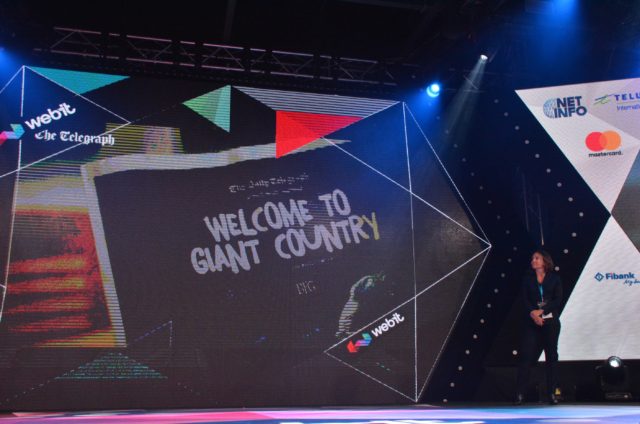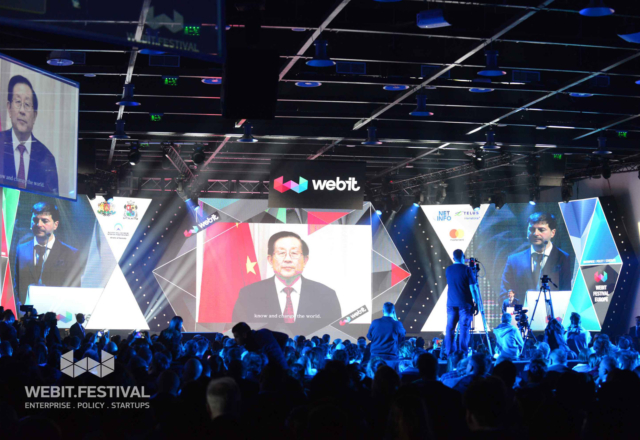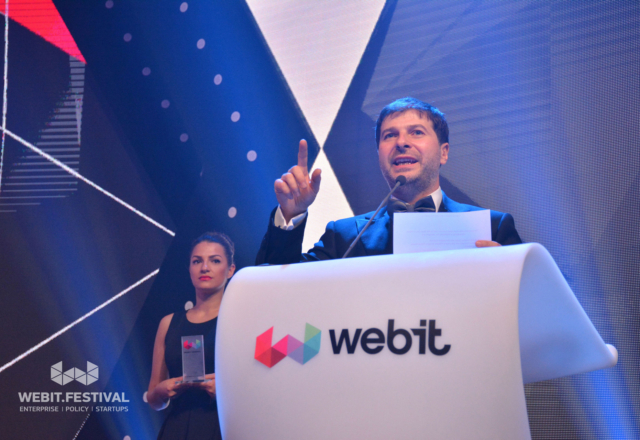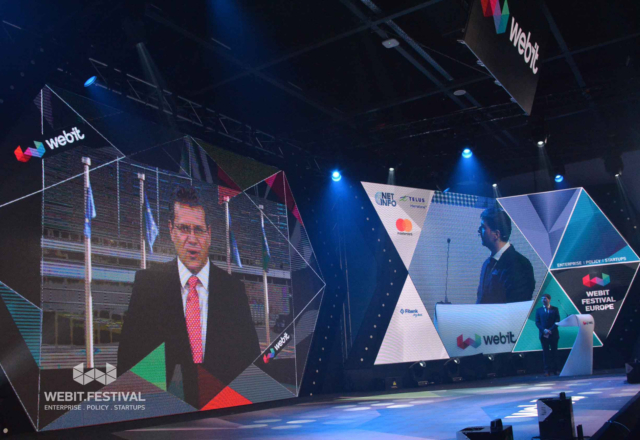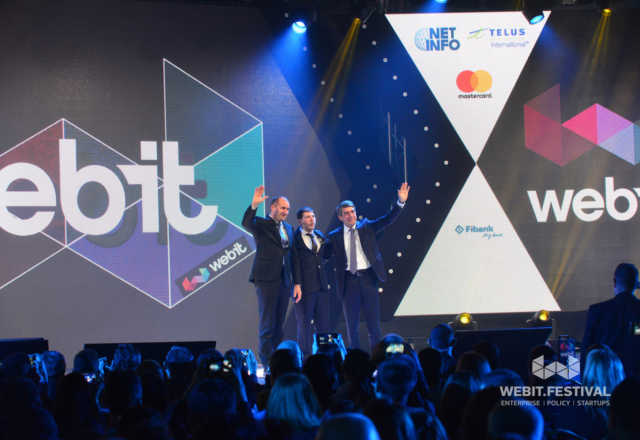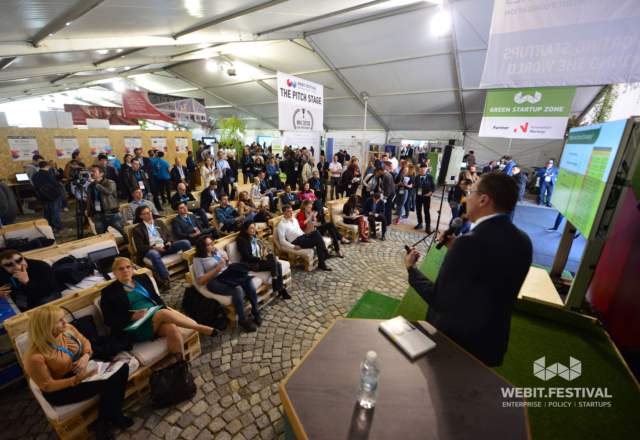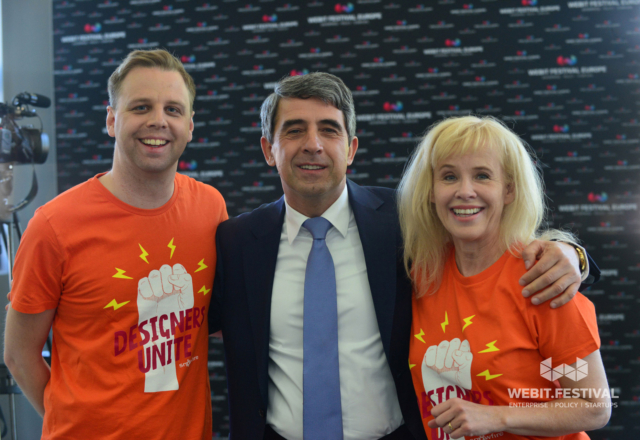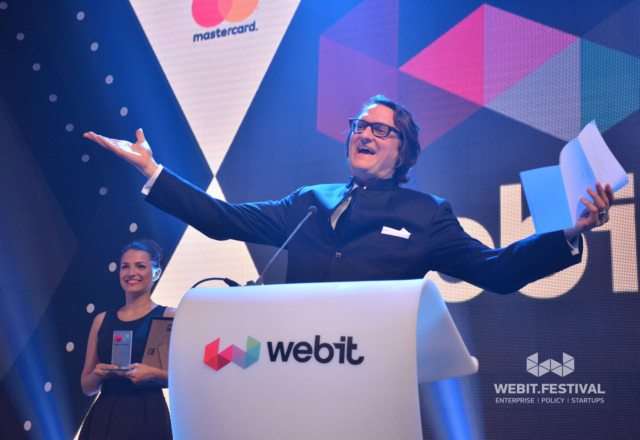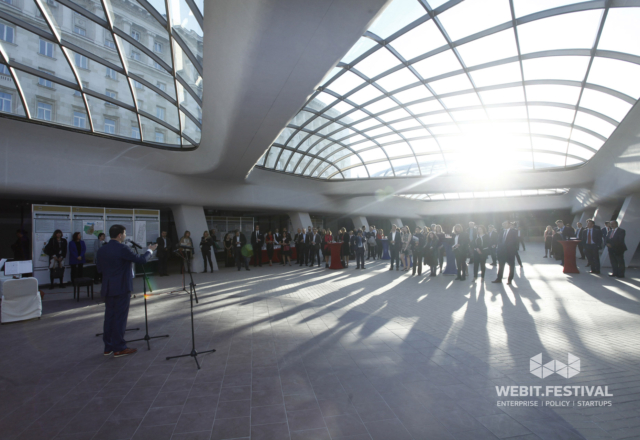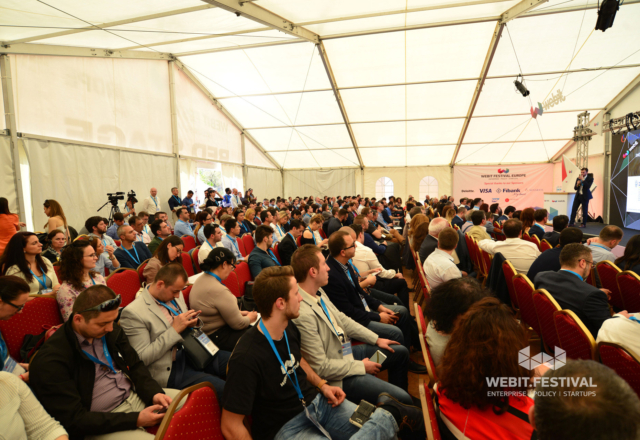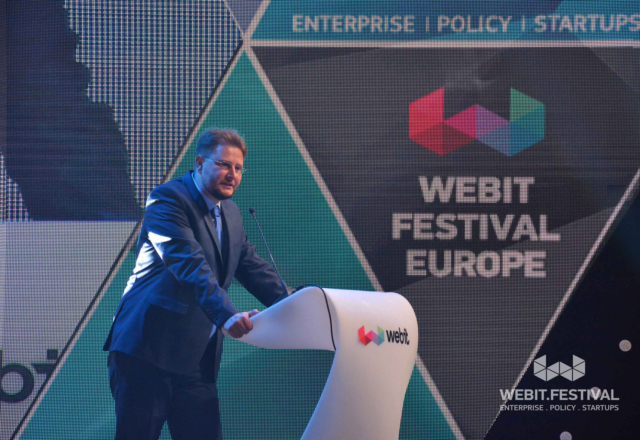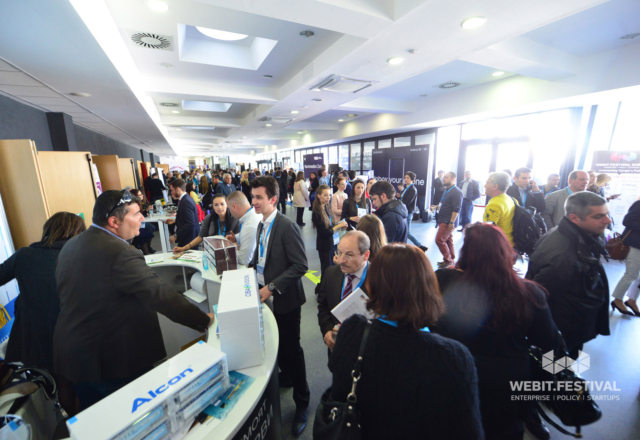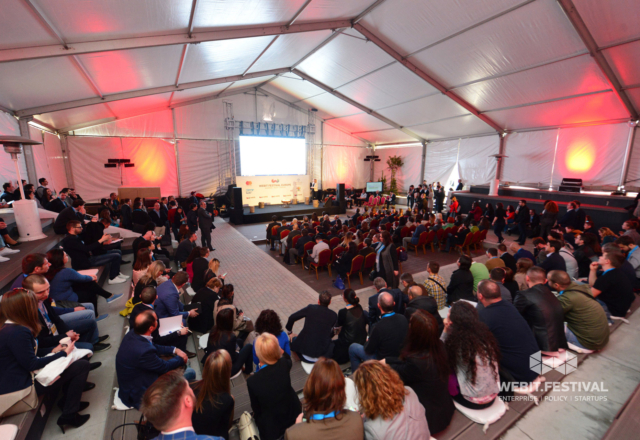In the digital world we live in we get information about what is happening around the globe literally on every second. In an information environment like that the task of running a newspaper may seem almost impossible, especially if you want to reach the young audiences and Мillennials in general.
But there are more than several examples around the world of successful symbiosis between the old school analytical journalism and the fast lane news reporting using the tools that digital technology gives us.
During this year’s Webit.Festival Europe our guest had the chance to listen to the Global Entertainment Director of Telegraph Media Group talking about the customer journey through creative content and the right balance between engagement and scale in the media industry nowadays.
Parkinson has over 20 years experience in all aspects of Marketing and Distribution in the UK and International film distribution industry. Starting her career in the marketing department of the legendary Palace Pictures and then going on to roles as Promotions Manager at United International Pictures followed by 11 years as Head of Film across the Emap portfolio. Denise’s most recent roles have included Director of International Marketing for Europe, Middle East and Africa for Disney, ABC and ESPN Television and Global Entertainment Director for Yahoo!
Recently she was asked by The Telegraph to develop the film category of their news. Now she works closer with the movie studios, while her work is increasing the revenue and contend on all communication channels of the 200-years old newspaper.
Expanding a media institution like The Telegraph to reach the digital audience is definitely not an easy task. The newspaper is a classic broadsheet with conservative analysis and old school media approach. But now its movie section is reaching the mass public, making the studios happy and getting a big part of their revenue through promotion campaigns.
That level of success required a complete reform in the way the media is producing content that work seamlessly with its digital and print products. And while the newspaper may look like a conservative broadsheet, the app is bright,visual and simple to use and give us the option to choose only the content we want to see and get notifications about the breaking news in the respective categories.
“This segment is about the consumer journey. It’s so hard to get cut through now and get stand through. It’s so hard to get people to go to the movie, when there is Netflix and Amazon and so many enticements to just stay at home and watch on your tablet”, Parkinson said.
Today, The Telegraph is not just a quality newspaper for the British public, but a 360 degrees publisher with global reach through online website, mobile app and print edition. It has 22.5 monthly users. 6.7 million of them are reading news on a desktop computer, 4.4 million in print and 16.6 on various devices, so the mobile is really the growth area for the future.
And while the media is publishing some premium content as part of its monetization strategy, 80% of the content is free and easy to access for the user.
If you want in-depth analysis from any of The Telegraph’s columnists on sport, politics, entertainment, lifestyle etc., you need to pay a small monthly fee to access the premium sections of the newspaper online editions. With that, you also get subscribers benefits and unique opportunities, including even red carpet experiences.
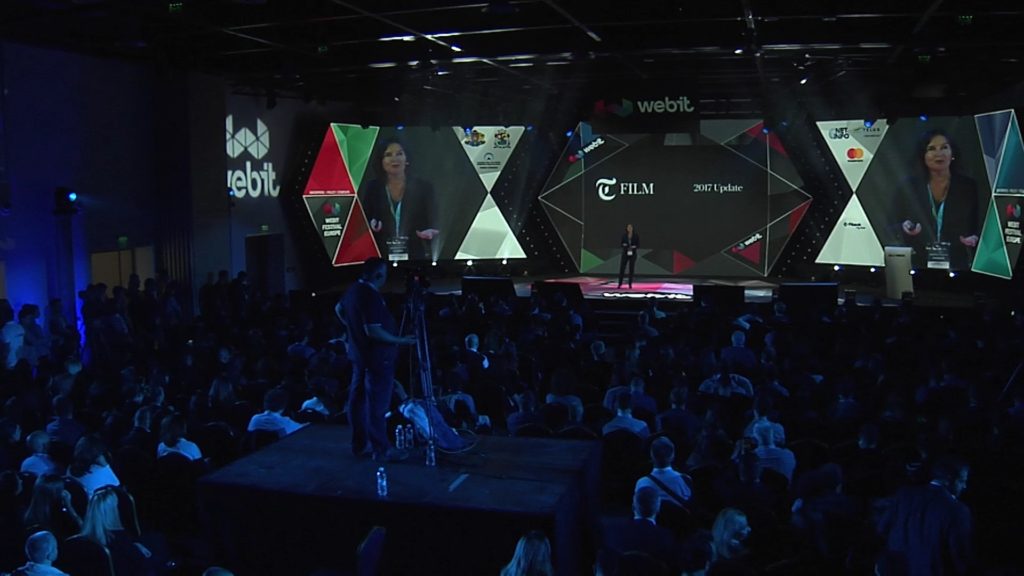
For the last several years The Telegraph established itself as the go to media when searching information about upcoming movies with its exclusive content and innovative Omni-channel approach.
“We are number 1 for cinema goers. That means that we have more cinema goers engaging with our brands than our competition. This is really important message to send to the film studios and to work with them on their promotions. We have a young audience. So for an old newspaper that has got a conservative tone and voice it’s really fantastic to know that we index much higher with youth audience more than you would expect. We actually have more users than Buzzfeed”, Parkinson said.
As an example of the 360 degrees approach of the media she pointed out the exclusive interview with the Hollywood star Adam Driver. The Telegraph ran an online competition and gave its audience a chance to come to the interview, watch the film “Paterson” before its official premiere and meet the actor in person.
Right now Adam Driver is really huge star because of his role as Kylo Ren in the reboot of the Star Wars saga and this kind of award is very interesting for the readers. The interview was streamed live for the people, who couldn’t win the tickets.
According to Parkinson this is a complete integrated promotion that fits the distributor’s every need. Because they get a lot of pre-promotion, when the media was promoting the competition, that happened about 2 weeks before the film was released. And just a few days before the premiere the live interview happened. That interview was then edited and uploaded on the site to sustain the interest couple of weeks after the movie was released.
“It’s a win win and we get exclusive content which means if you are Adam Driver fan we are the only place that you can come to. So the most important thing is getting exclusives, because exclusives are what drives audience”, she explained.
Going back to the old school approach, the newspaper was able to integrate the legacy of the brand and produce some engaging advertorials, because in the media business everything is about the engagement and keeping the audience on the page as long as possible.
You may watch the full lecture of Denise Parkinson here:
If you want to keep up with the latest trend in the world of digital economy and technology, then Webit.Festival is the right place for you. Visit our website and book 2 of our Super Earlybird tickets for Webit.Festival Europe 2018 for just €100.
Feel the Webit vibe with some of the best photos from this year’s event!
